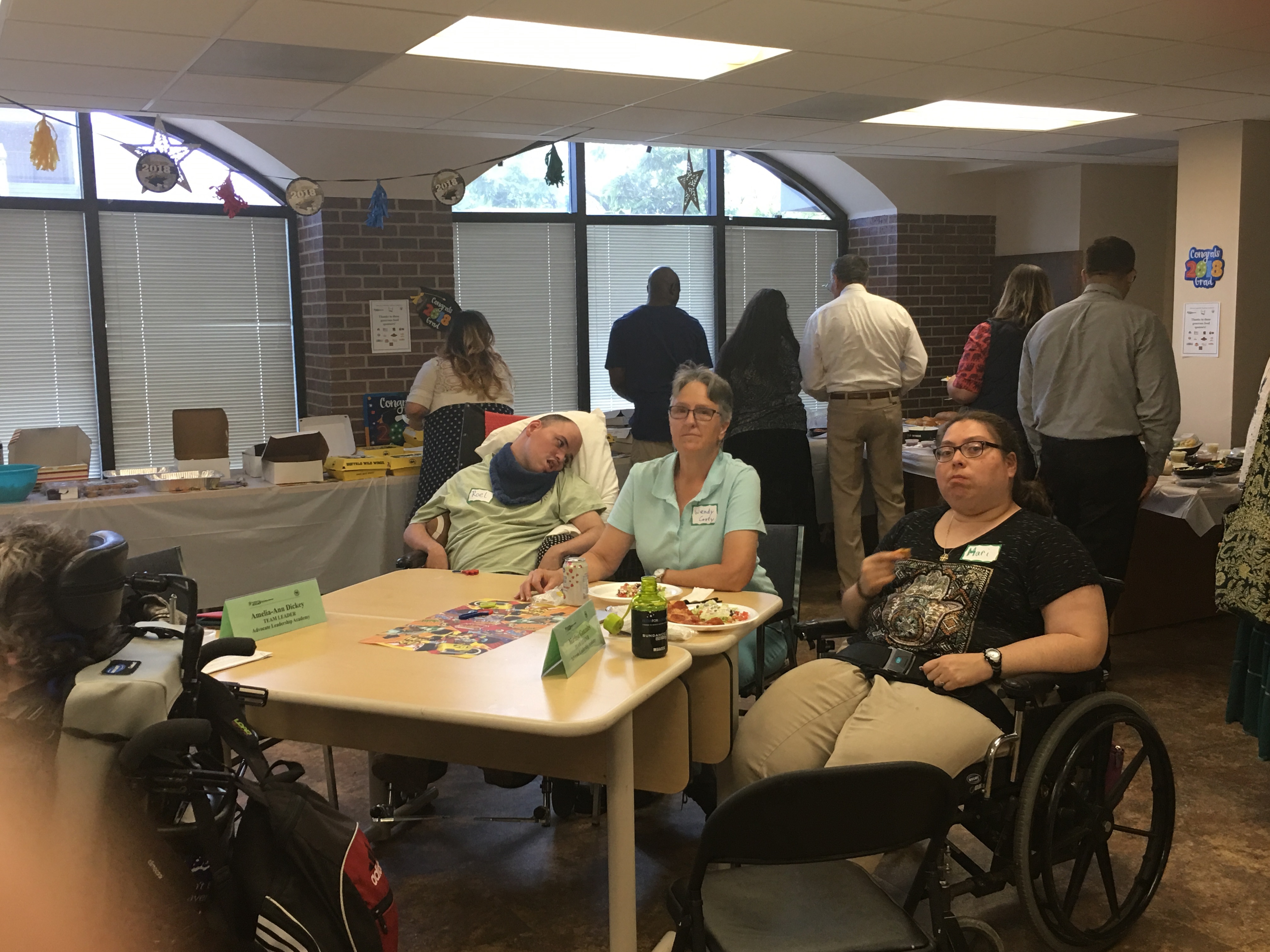Center for Self Advocacy Program
The New Mexico Center for Self Advocacy is a place where people with intellectual and developmental disabilities go to meet, organize, work and train others on how to improve their quality of life. Our goal is to help and support people with developmental disabilities in becoming empowered, making their own decisions, speaking up for themselves and others, taking control of their own lives, creating awareness about disability issues and achieving maximum independence and quality of life.
Explanation of our Advocate Leadership Academy Model
The mission of the Academy is to build and refine leadership abilities in interested persons with diverse disabilities from a variety of communities in New Mexico by providing learning opportunities, resources and hands-on experiences.
The vision of the Academy is:
- There are Regional Resource Networks in every region of New Mexico
- These Regional Resource Networks are facilitated, organized and maintained by Advocate Leaders from local communities.
- The Regional Resource Networks focus on:
- Creative resource sharing and solutions for the all community members
- Inclusion and participation of community members with disabilities
- Collaborating frequently
- Emergency preparedness
- Celebrating successes
Outcomes of the Academy
Learn through hands-on leadership opportunities how to effectively complete leadership projects.
- Learn the importance of collaboration and network building in effective leadership.
- Complete self-assessments and learn how to analyze your strengths and weaknesses.
- Know how to set and achieve goals.
- Be able to follow and advocate for both local and statewide issues facing people with disabilities.
- Become an Academy Team Leader who is able to do peer training, peer coaching and peer mentoring of future Academy fellows.
Code of Conduct
- Attendance
- Participation
- Respect
- Leadership
- Dress Code
- Ambassadors
Competencies
A. Disability Awareness
- I know how to manage my disability on a daily basis.
- I develop action plans or steps to reach my goals.
- I access natural supports to get things done.
- I understand risk taking as part of choice-making in life.
- I take responsibility to improve my daily quality of life.
- I practice constructive criticism for personal growth and enhance my effectiveness.
B. Disability Advocacy
- I know about disability history events.
- I am aware about misconceptions and stereotypes used in the past about people with disabilities.
- I actively participate in disability advocacy movements.
- I understand how disability rights relate to human and civil rights.
- I deal with difficult situations with disability advocacy.
C. Coalition Building: Leadership
- I demonstrate the qualities of an effective leader.
- I facilitate small group meetings.
- I facilitate conference presentations.
- I organize logistics for events or conferences.
- I communicate effectively with others.
- I write proposals for grant funding to improve my community.
Contact Us
Email: daniel.ekman@ddc.nm.gov
Call: 505-670-5698
STAY CONNECTED
We have exciting news. We now have both a Twitter and a Facebook account.
Follow @newmexicoddc on Twitter
Find the New Mexico Developmental Disabilities Council on Facebook
Look for links to good information, multimedia and updates.

The Center for Self Advocacy offers presentations on a wide variety of topics including:
Self-advocacy | Antibullying | Employment | The adult service system | Post-secondary education | Community living & Social skills
There are many presentations offered within each topic. For example, the self advocacy presentations focus on both knowing your rights as a person and knowing the best way to stand up for them. This is a very important skill both in school as well as in the adult world, where individuals are expected to speak up for what is best for themselves rather than having someone do it for them.
The employment presentations offer both concrete advice and practice on how to look for and get a job from individuals who have been through the process and have seen both what to do and what not to do.
The presentations are specifically targeted for areas where there are often information gaps or difficulties for individuals. They are written by the very people who have faced those challenges. The students can gain both knowledge and confidence to be able to make the various transitions that come up into adulthood as well as become better students and better people.
Presentations can be given to a diverse range of groups including students, parents, staff members or even community members in general.

